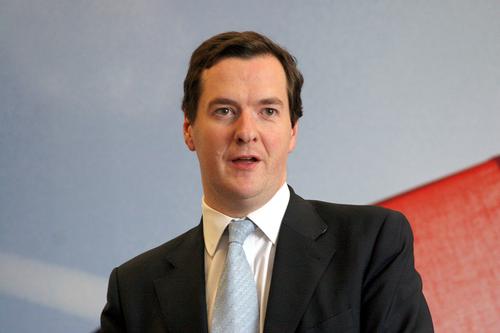see all jobs
George Osborne’s business rates reshuffle will create ‘fragmented and patchy’ tourism landscape
Chancellor George Osborne’s plans to give local councils new powers over business rates could leave tourism hotspots in rural areas and seaside destinations with even bigger investment problems than they currently face.
That is the warning from Tourism Alliance director Kurt Janson, who says the devolution of responsibility to local authorities for setting business rates and spending their proceeds will lead to an “even more fragmented and patchy tourism landscape.”
Speaking at the recent Conservative Party conference, Osborne announced that he will allow councils to lower rates to attract new business and to decide how to spend the revenue generated from business rates (which amounts to £26bn nationwide). Cities which have an elected mayor – such as London, Manchester and Sheffield – will also have the right to raise business rates, by up to 2p in the pound.
“We will give councils extra power and responsibilities for running their communities,” he told delegates in Manchester.
“The established transfers will be there on day one, but thereafter, all the real growth in revenue will be yours to keep.”
The Labour Party has said that a move away from the current pooled national system for business rates – where the proceeds from richer local authorities help subsidise poorer areas – will lead to greater inequality and a more entrenched ‘north-south divide.’
Janson says the poorer local authorities are typically tourism heartlands like seaside destinations and rural areas. Because these areas have fewer businesses than major cities, he warns they are likely to receive diminished returns under the new system.
“The problem with this is that rural areas and seaside destinations are the places that most need the money for regeneration and economic growth and their funds will decrease as a result of this, because the government will be withdrawing its core funding,” he told Leisure Opportunities.
“The second problem is that regardless of the value of tourism to the local economy, there is no guarantee that local authorities will reinvest any of the tax in tourism. So we will continue down the path of a more fragmented and patchy tourism landscape across the country, which isn't helpful for national tourism growth.”
The policy is at odds with the government’s repeated aim of diversifying Britain’s tourism economy so that more visitors are attracted to regional areas outside of London. In the face of declining visitor numbers, there have been several efforts in recent years to boost visitor numbers to the seaside, with David Cameron recently announcing a new strategy to entice UK visitors beyond London and boost regional tourism in the form of a five-point plan.
Janson believe the latest move announced by Osborne will have ‘profound implications’ for tourism and says that, despite the risks, the business rates reshuffle could also provide more encouraging outcomes.
“On the positive side, one of the problems that there has always been is that local authorities have tended to see tourism as a drain on their resources because of the costs to them of maintaining the public realm – parks, beaches, roads, toilets, bins, etc…. – from which they get no real benefit,” he added.
“So the new measures will create a virtuous circle in that more tourists, means more businesses, which means more taxes for them to reinvest to generate more tourism – so this is good.”
- News by sector (all)
- All news
- Fitness
- Personal trainer
- Sport
- Spa
- Swimming
- Hospitality
- Entertainment & Gaming
- Commercial Leisure
- Property
- Architecture
- Design
- Tourism
- Travel
- Attractions
- Theme & Water Parks
- Arts & Culture
- Heritage & Museums
- Parks & Countryside
- Sales & Marketing
- Public Sector
- Training
- People
- Executive
- Apprenticeships
- Suppliers





























